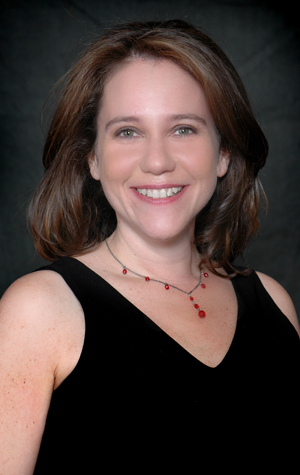The Job Hunt: A Hiring Pro’s Perspective
Executive search firm expert on how to search, seriously

In part two of our four-part series on how to find a job, BU Today talks with Lorri Zelman (GRS’90), managing director of executive search firm Solomon Page Group. Tomorrow, part three offers advice from Justin McCummings, associate director of ’the School of Management’s Feld Career Center, and in part four, we touch base with graduating senior Natalie Swenson (ENG’11), who has found a job in her field.
BU Today: What do professional recruiters look for in young job applicants?
Zellman: There are commonalities that most companies are seeking. These include flexibility, high energy, and a positive approach. We look for candidates who are strategic, who understand the overall scope of their role and how it fits into the goals of the company and/or department, and who have a roll-up-your-sleeves attitude. Our clients want visionaries who are execution-oriented, who can make things happen. Strong attention to detail and solid project management skills are often required as well. Finally, most jobs in this day and age require strong computer skills.
How would you describe today’s job market?
We are seeing many more “permanent” full-time roles. The hiring seems to be occurring across virtually all industries, including media/advertising, financial services, pharmaceuticals, fashion, nonprofit, and professional services.
What is your single most important piece of advice?
Be positive and enthusiastic. Demonstrate flexibility and hunger for learning and willingness to work hard. Listen. Do a lot of listening and absorb as much as you can. Be prepared. There’s no excuse for not doing research in this day and age. Make sure you Google the interviewers before you meet them. You can find something out there on practically everyone. Ask good questions that are unique to the company.
What do you tell liberal arts majors looking for a job?
If you are applying for a technical job, sometimes style doesn’t matter, because they will assess skills and technical competence. For almost any job that a liberal arts major seeks, those hiring will be assessing not just skills and ability but style. Demonstrating commonly sought-after traits is key: flexibility, adaptability, high energy, drive, determination, attention to detail, strong technical skills.
What are the biggest mistakes job hunters make?
On their résumés: when people don’t pay attention to detail and have spelling errors or inconsistent formatting, dates that don’t align. People list home phone numbers where the person who answers doesn’t speak English or children answer and don’t take messages. It’s also important to use professional emails when job hunting. “Hotmama10” is not a good email to use when job searching. The same thing applies for voicemail recordings. If you are job searching, it should be very professional.
In interviews, people often speak without thinking about their responses in an attempt to keep conversation flowing. This can lead to poor responses. It’s OK to pause for a few seconds and think about the right answer. I also can’t believe I have to point this out, but I’ve had people chew gum, answer the phone, and keep talking while I’m sitting there. Too much perfume or cologne is also a no-no. It distracts you when you’re really trying to listen to what the candidate has to say.
How can social media help in finding a job? How can it hurt?
LinkedIn is quickly becoming the primary tool for recruiters. It’s important to have a complete and accurate profile. If it doesn’t match your résumé, it could eventually lead to “misrepresentation” problems in the job search process. There are many companies that do use Facebook for interviewing. I have heard many stories from corporate recruiters who say they look all candidates up before meeting them. If you are looking for a job, you should be sure that anything accessible about you on the internet is as professional as possible. There are exceptions, based on the type of job someone is seeking, but it’s always a good idea to be careful about what you say and how you say it, and about the pictures that you post or that are posted of you.
What are some guaranteed job interview deal breakers?
I meet people all the time who don’t know how to deviate from their rehearsed script. If you don’t answer the questions, you will likely not go far. It’s also critical to remain positive about former employers. No one wants to hire a “negatron.”
Do you have any cautionary tales from your own experience with job applicants?
I could write a book. One of my favorites is when the interviewer asks what someone likes least about their job, and they describe what they would be doing in the job they are interviewing for. I’ll never forget the woman who had very long purple nails, lots of makeup, and strong perfume. I remember the nails because when she answered her phone during our interview, she raised her pointer at me to “wait a minute,” which became five minutes. That was over quickly.
Read part one of “The Job Hunt,” an interview with H. Scott Smith (LAW’96), author of Find Your Perfect Job: The Inside Guide for Young Professionals.
Comments & Discussion
Boston University moderates comments to facilitate an informed, substantive, civil conversation. Abusive, profane, self-promotional, misleading, incoherent or off-topic comments will be rejected. Moderators are staffed during regular business hours (EST) and can only accept comments written in English. Statistics or facts must include a citation or a link to the citation.